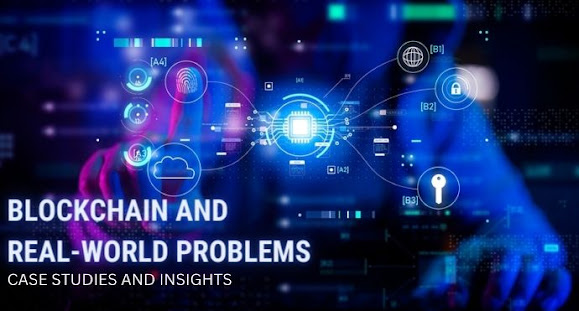Blockchain and Real-world Problems: Case Studies and Insights
Using blockchain technology for solving real-world problems is quickly becoming popular. From tracking food safety in supply chains to providing efficient payment solutions, the possibilities are vast.
Case studies provide valuable insights into the real-world application of blockchain technology. By looking at a dedicated case study, we can explore different approaches to solving a particular problem. Some case studies may provide innovative solutions to existing challenges, while others may be less successful. It is important to learn from both the successes and failures in order to more accurately assess the effectiveness of blockchain technology.
In addition to case studies, there is also research that sheds light on the real-world implications of blockchain. Research on topics such as user adoption and trust in decentralized systems can provide valuable insights into how blockchain can be used to solve various problems. It is important to continue gathering data in order to ensure that applications of blockchain technology are based on an evidence-based approach.
In this blog, we will look at a few case studies to gain insights into how blockchain technology can be used to solve real-world problems.
One of the most popular use cases for blockchain is in the finance industry. Through blockchain, banks and other financial institutions are able to streamline payments, process transactions quickly and securely, and provide users with greater transparency. A case study by JP Morgan has revealed that blockchain technology can reduce costs in payment processing by up to 70% and can reduce transaction time to only seconds.
Energy Industry
Another area in which blockchain is being used to solve real-world problems is in the energy industry. A study conducted by Siemens revealed that blockchain could revolutionize the way energy is produced and distributed, making it easier to monitor energy usage and more cost-efficient to purchase and sell electricity.
Identity Security
Identity security is also benefiting from blockchain technology, enabling organizations to securely store and share user data. A case study by Microsoft showed that blockchain could easily and securely verify users, reducing the risk of identity fraud or theft.
Equitable Society
Beyond that, blockchain is also being used to create a more equitable society through increasing access to financial services, reducing poverty, and empowering communities. A study by the World Economic Forum revealed that financial services using blockchain could reduce costs and increase access to services, thus leading to greater financial inclusion.
Retail Industry
Another area that has been revolutionized by blockchain is the retail industry. Companies are now using blockchain technology to improve their supply chains and increase transparency. This can track products from the factory to the store, ensuring that customers receive the best quality. Additionally, blockchain technology can be used to keep track of customer data, allowing retailers to provide personalized shopping experiences.
Healthcare Industry
The healthcare industry is leveraging blockchain technology to improve data security and patient privacy. Because of its immutability, blockchain is being used to store sensitive patient information securely while still allowing authorized users to access it. It is also being used to create secure communication networks, allowing healthcare providers to share information quickly and securely.
Companies and organizations are looking for ways to use blockchain for their everyday operations.
Here are a few case studies that show the potential of blockchain in the real world:
One example is the U.S. Department of Homeland Security using blockchain to track food safety in food supply chains. Blockchain enables better data traceability and transparency, which help address issues such as food contamination or mislabeling.
The U.S. Department of Defense is using blockchain to secure its networks and communications and to verify and authenticate data.
The United Nations is testing blockchain to provide food aid to refugees in Jordan. This system will help ensure that the intended recipients of the food aid actually get the food.
Walmart has used blockchain technology to create an immutable system for tracking the origin and movement of food items throughout the supply chain. This system allows them to quickly identify and respond to potential contamination of food items.
Another example is a European insurance company, AXA, using blockchain to improve the efficiency of their claims process. By utilizing smart contracts, they are able to automate the whole process, significantly reducing the time and cost.
A cryptocurrency company, Ripple, is making use of blockchain technology to solve the payments problem. They are developing a payment system that will allow instantaneous and low-cost international payments.
These case studies provide us with some valuable insights into how blockchain technology can be used to address real-world problems. Blockchain has the potential to revolutionize the way data is stored, processed, and transferred. By leveraging blockchain technology, organizations can gain greater efficiency, security, and transparency in their operations.
Source Link https://bit.ly/404eD8a
Contact US:
Mobiloitte Technologies
Phone: +91–9999525801
E-mail: connect@mobiloitte.com


Comments
Post a Comment